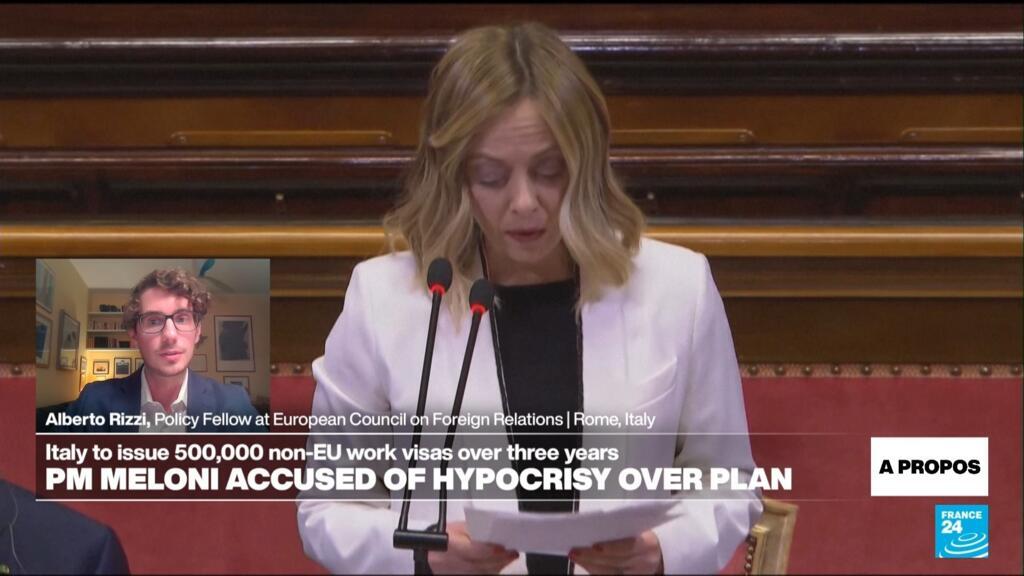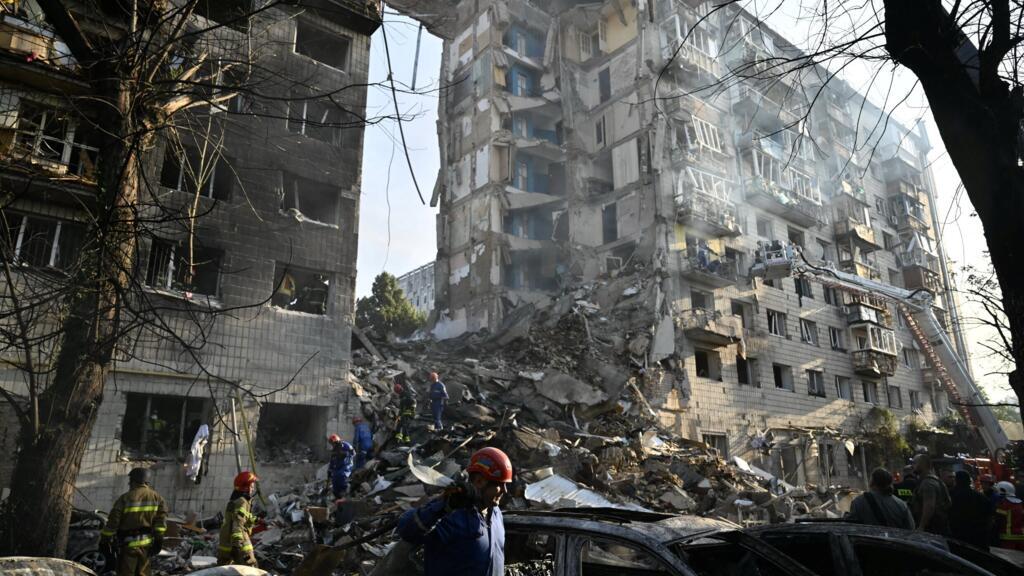The recent developments in Italy's immigration policy under the leadership of hard-right Prime Minister Giorgia Meloni mark a significant shift from her previous stance during the highly publicized 2022 election campaign. Curbing migration was a central theme of her platform, resonating strongly with voters who expressed concerns over uncontrolled immigration. Meloni's government capitalized on these sentiments, proposing stricter immigration controls and promising a tough approach to managing the influx of migrants. However, in a surprising turn of events, her administration has now announced plans to welcome nearly 500,000 documented immigrants over a three-year span.
The Italian cabinet disclosed that it will be issuing work visas for approximately 500,000 non-European Union (EU) nationals from 2026 to 2028. This decision appears to contradict Meloni's earlier rhetoric regarding immigration but also seems to reflect an acknowledgment of the pressing labor shortages faced by various sectors in Italy. The pandemic and economic upheaval have exacerbated the need for workers in specific industries, thereby prompting the government to reconsider its rigid stance on immigration.
This outreach will primarily target skilled workers, indicating a focused effort to fill labor gaps that could drive economic recovery and growth in Italy. By enabling access for a considerable number of workers from outside the EU, the Italian government aims to bolster its workforce, particularly in sectors that have struggled to find adequate labor supply. These sectors include agriculture, healthcare, and construction, which have been historically reliant on immigrant labor.
Prime Minister Meloni's change in policy reflects the complexities of governing in a nation that grapples with both public sentiment and economic realities. While she won initial support on promises to curb migration, the practical implications of a faltering economy and labor shortages have necessitated a reevaluation of her administration's approach to immigration. By strategically allowing a controlled influx of foreign workers, Meloni's government aims to balance the need to maintain a firm stance on immigration while also addressing the immediate demands of the Italian economy.
This policy shift has sparked discussions among political commentators, with many pointing out the paradox inherent in Meloni's approach. Critics argue that her initial promise to adopt an uncompromising stance on migration may have contributed to a polarized political landscape. With this new policy, however, Meloni seeks to navigate the dual challenges of maintaining popularity among her voter base while responding to economic imperatives that call for a more open immigration framework.
This development underscores the dynamic nature of immigration policy in Italy and highlights how political commitments can evolve in response to changing conditions. As Meloni's administration moves forward with the implementation of this work visa scheme, the focus will likely remain on how these immigrants are integrated into the workforce and society at large. The effectiveness of this policy and its impact on Italy's labor market will be closely monitored in the coming years.
Furthermore, this approach raises questions about the overall long-term strategy of Meloni's government regarding immigration. Will they continue to pursue a balanced policy that seeks to attract skilled labor while maintaining strict controls on undocumented migration? Or will political pressures and voter expectations lead to further changes in direction? The evolution of Italy's immigration policy under Prime Minister Giorgia Meloni will be an important aspect to observe as the country navigates its challenges and opportunities in the post-pandemic era.












